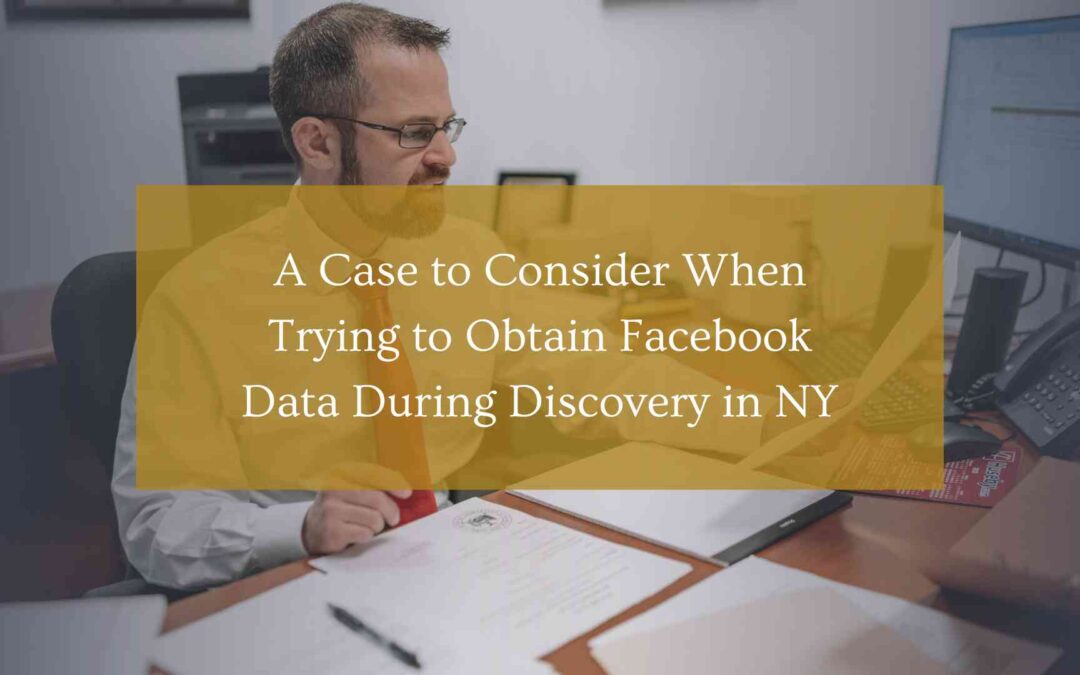Social media sites can contain valuable information that can be used by plaintiffs or defendants at trial. Accessing this evidence, however, can be a challenging process. In Forman v Henkin, a case decided on February 13, 2018, by the New York State Court of Appeals, the complexities of access to social media posts and profiles were demonstrated by arguments made by both the plaintiff’s attorneys and the attorneys representing the defendant.
Particulars of the Case
According to the plaintiff in Forman v Henkin, she was seriously injured in a fall from a horse owned by the defendant in the case. As a result of her injuries, the plaintiff stated that her once active lifestyle had become impossible. She said that she could no longer use a computer effectively or participate in sports, go to the movies and do many of the things that she had once enjoyed.
During a deposition given by the plaintiff, she referenced her Facebook account and a large number of photographs that allegedly showed her active lifestyle before the accident. She also stated that she had deactivated the account about six months afterwards and did not recall whether any photographs after the accident were posted to the account.
The Argument by the Defense
Because the plaintiff had used her Facebook account to support her claims of an active lifestyle previous to her injuries, the defense requested an unlimited authorization to access the entirety of the plaintiff’s Facebook account, including private posts and photographs shared only with friends. Because the plaintiff contended that she had suffered serious difficulties in managing written and spoken communications after the accident, the defense argued that access to this material would be relevant to the case.
The plaintiff did not provide that authorization during discovery. As a result, the defense moved to compel the plaintiff to provide access to this information, arguing that the posts and photos would provide evidence of the plaintiff’s activities before the accident and might show that some of her claims of cognitive difficulties were either true or false.
The Plaintiff’s Argument Against Disclosure
In responding to the defense’s motion to compel disclosure of the private portions of the Facebook account, the plaintiff’s attorneys argued that the public part of the account contained only a single photo that did not refute the plaintiff’s deposition testimony. The plaintiff also argued that the information was privileged and should not be disclosed because of privacy issues.
The Supreme Court ruled that all photographs that the plaintiff intended to introduce at trial should be disclosed to the defense. Additionally, the plaintiff was directed to produce all photographs of herself posted on Facebook privately that were posted after the accident unless they depicted nudity or romantic encounters. The plaintiff was also to provide an authorization for Facebook to provide general information about the time and date of private messages posted by the plaintiff and the number of characters or words in each of these messages. The content of the messages, however, was not to be provided by Facebook under the court’s ruling.
The Appellate Court Decision
Because the plaintiff was not willing to provide this authorization, the case was appealed by the plaintiff’s attorneys to the Appellate Division, which ruled that only the photographs that the plaintiff intended to introduce at trial were subject to disclosure to the defense.
Reversed by the Court of Appeals
In its decision, handed down on February 13, 2018, the New York Court of Appeals ruled that the Appellate Court’s decision was in error and that the ruling made by the Supreme Court should stand. This decision was based on two factors:
• The threshold of inquiry under New York law is not the privacy of the materials to be disclosed but rather their relevancy.
• There is no heightened threshold for private materials on social media accounts as opposed to public posts and photographs.
This case perfectly demonstrates the difficulties and complexities of defense strategies involving information derived or requested from social media sites.
At the Di Lauri & Hewitt Law Group, we offer innovative and practical defense solutions for our clients. To learn more about our services, call us today at 973-354-5783. We look forward to the opportunity to serve you.
Get in touch with us
How Can
Our Lawyers
Help You?
We understand how important it is for our clients to get the legal help they need today. We are here for you and ready to help.
Why Trust Us?
Rated by Super Lawyers
As a Rising Star personal injury attorney in Morristown, New Jersey for multiple years in a row.
No aspect of this advertisement has been approved by the Supreme Court of New Jersey.
National & Local Proficiency
We have litigated in every vicinage (court) in New Jersey and we deliver an exceptional breadth and depth of experience in representing corporations, businesses, families, and individuals in need of the best legal advisors to protect their rights.
20+ Years of Combined Experience
We have a track record of success that spans over two decades in getting you the results you deserve.

